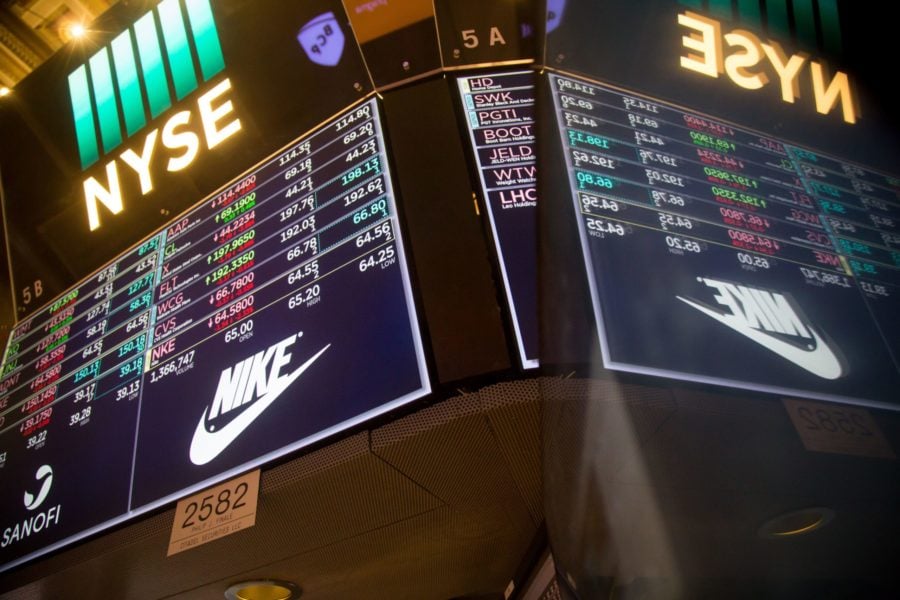

One robo-adviser did the unthinkable during the depths of the recent downturn.
Titan Invest purchased an inverse-ETF that shorted the S&P 500 after an algorithm decided the market had reached an inflection point. From the date the fund was purchased on March 3 until March 31, the investment returned 8% when the S&P 500 was down almost 14%, according to a recent study. The holding, in fact, was something the researchers had never before seen on an automated platform.
Digital advice players have long heralded the ethos of low-cost, passive investing, and kudos to firms that are offering different investment perspectives. As the market turns the page on a historic bull run, investors are increasingly looking for security and protection.
If nothing else, actively managed funds that offer complex investment strategies are a welcome breathe of fresh air from the plain-vanilla index funds found on every traditional automated adviser.
To be fair, Titan not only outperformed during the downturn but blew competitors out of the water. The portfolio had the best one-period return above or below the normalized benchmark the researchers ever witnessed. Other individual securities Titan held — including Amazon, Microsoft and Netflix — were also all up for the quarter, while nearly all major equity indices were in the red.
That sort of safety net comes at a price, of course. At 1% of assets under management, the platform is very expensive and costs just as much as a human adviser without all the bells and whistles that come with an experienced financial planner. What makes Titan different is a decidedly low investment minimum of only $100, meaning even mass-affluent investors can access high-end market strategies.
“People are always interested in strategy, and having success that has been proven is instrumental,” said David Goldstone, research analyst for Backend Benchmarking and author of the study. “There has been a massive shift toward passive, but there are investors who value outperformance.”
Actively managed funds are certainly unorthodox for digital advice and expensive. But, the funds come with something investors pay a stiff premium for — downside protection. Every correction appears to be favorable for active management, but this one was especially steep, said Titan Invest co-CEO Clayton Gardner.
“A lot of what main street wants access to is not your average cookie-cutter investments,” Gardner said. “Many young investors have not lived through a recession before and dramatic corrections are really when clients begin to have questions.”
Titan is nowhere near the scale of incumbent platforms or even in the ballpark in terms of assets that traditional platforms need to become profitable conservatively estimated by some to be around $1 billion. (Titan maintains it is close to becoming profitable.) With approximately $100 million in assets under management and around 10,000 clients, Titan has only been on the researchers’ radars for the last three quarters, according to the data.
Granted, it’s a small sample size.
There are also massive risks. The track record for active robo-advisers has been less than encouraging over the past few years. A handful have already shuttered their doors in recent years, most notably Hedgeable in 2018, but others include QPlum last year.
Still, a digital portfolio that can beat the market is an interesting option for investors. Finding that sort of differentiated playing field in a crowded marketplace is what many advice firms are looking for. It's what they absolutely need in order to achieve the scale necessary to survive.
If actively managed funds can maintain their recent success — and that’s a very big if — hands-on advice will be primed to play a much larger role in digital investing.

To help fund the proposal, the governor and Florida's finance chief are probing municipal finances on a "local government accountability tour" to uncover potential waste.

Edward Jones’ job cuts and overall realignment internally are contributing to higher costs for the company, it said in its recent quarterly report.

Meanwhile, Fifth Third's RIA arm adds a former billion-dollar BNY trio in Boulder, Colorado, while a hybrid RIA opens a new North Carolina location with a former Raymond James-affiliated team.

Analysis highlights swelling out-of-pocket costs and wasted time on paperwork, with an outsized toll on businesses and around crypto transactions.

The appointment to its investment management arm comes roughly a year after the firm first announced plans to launch its own exchange-traded fund platform.
Orion's Tom Wilson on delivering coordinated, high-touch service in a world where returns alone no longer set you apart.
Barely a decade old, registered index-linked annuities have quickly surged in popularity, thanks to their unique blend of protection and growth potential—an appealing option for investors looking to chart a steadier course through today's choppy market waters, says Myles Lambert, Brighthouse Financial.
